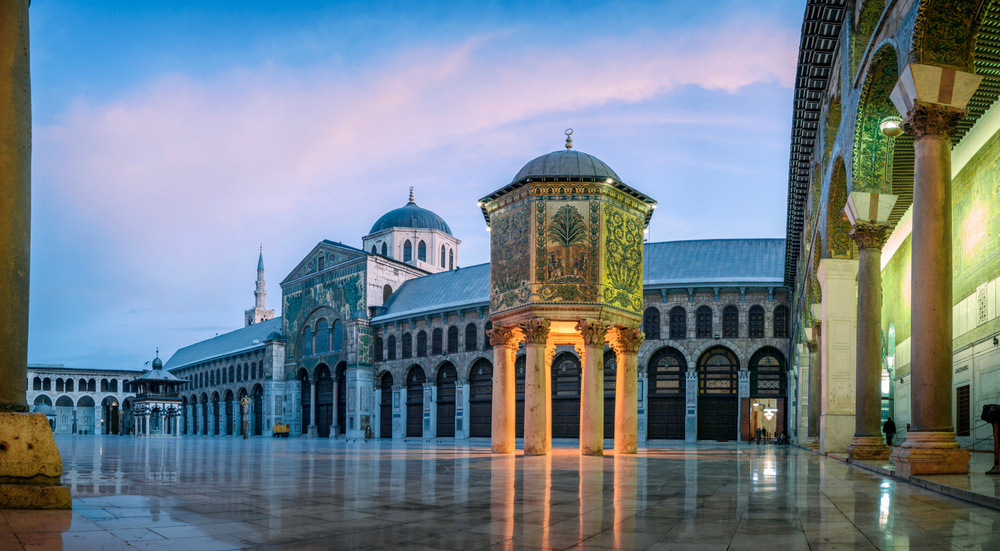Were Hakam ibn al-Aas and Marwan ibn al-Hakam from the Companions?
Answered by Shaykh Abdullah Anik Misra
Question
Are Hakam ibn al-‘As and his son Marwan from the companions of the Prophet (Allah bless him and give him peace)?
What is the stance of Ahl al-Sunna towards them?
Answer
In the Name of Allah, Most Merciful and Compassionate,
Hakam ibn Abi al-‘As, the uncle of ‘Uthman ibn ‘Affan (may Allah be pleased with him), is considered to be of those who accepted Islam after the liberation of Mecca.
The scholar Ibn Abd al-Barr says in his biographical work on the prophetic companions, al Isti‘ab: “He was of those who accepted Islam at the liberation of Mecca, and the Messenger of Allah (may Allah bless him and give him peace) expelled him from Madina and exiled him from it, so he settled in Ta’if, and his son Marwan went with him. And it was said that Marwan was born in Ta’if. And there is a difference of opinion regarding the reason that caused him to be exiled by the Messenger of Allah (Allah bless him and give him peace).” [Ibn Abd al-Barr, al Isti‘ab]
The hadith master Imam Dhahabi said, “To summarize, he [Hakam] does not have a special status in Prophetic Companionship, but rather he is considered as having it in a general way.” [Dhahabi, Tarikh al-Islam]
Elsewhere, he said, “[Hakam] has the lowest share in Prophetic Companionship.” [Dhahabi, Siyar A‘lam al Nubala’]
This means he was not a prominent or well-known Prophetic Companion but was nonetheless of the category of companions. A Prophetic Companion (sahabi) is someone who met the Prophet Muhammad (Allah bless him and give him peace) even once during his lifetime while believing in him and died on that same belief. [Ibn Hajar al-‘Asqalani, Nuzhat al-Nadhar]
Was Marwan ibn al-Hakam a Prophetic Companion?
Marwan ibn al-Hakam, the son of Hakam ibn al-‘As, is not considered to be from among the Prophetic Companions. It is written in Mir’at al-Mafatih, the commentary of Mishkat al-Masabih, that, “The correct position is that Prophetic Companionship has not been established for him; a group of scholars firmly opined this, among them [Imam] al-Bukhari.” [Al-Mubarakpuri, Mir‘at al Mafatih]
The Stance of the Sunni Scholars
The stance of the scholars of Ahl al-Sunna is not to speak negatively about nor delve into the controversies that came up between any of the Prophetic Companions, out of the utmost respect for the Prophet (Allah bless him and give him peace). [‘Ayni, Umdat al Qari’]
The generality of Muslims should not delve into the polemics or controversies surrounding the historical reports about the early Muslims who are not Companions either. Inciting others to delve into this is often done by various sects that promote deviant narratives of history to cast doubt and call toward their false beliefs. A Muslim should leave the reality and status of those Muslims who have gone on to Allah, to Allah, and stay on the clear path of guidance for themselves.
Wassalam,
[Shaykh] Abdullah Anik Misra
Checked and Approved by Shaykh Abdul-Rahim Reasat
Shaykh Abdullah Misra was born in Toronto, Canada, in 1983. His family hails from India, and he was raised in the Hindu tradition. He embraced Islam in 2001 while at the University of Toronto, from where he completed a Bachelor of Business Administration. He then traveled overseas in 2005 to study the Arabic language and Islamic sciences in Tarim, Yemen, for some time, as well as Darul Uloom in Trinidad, West Indies. He spent 12 years in Amman, Jordan, where he focused on Islamic Law, Theology, Hadith Sciences, Prophetic Biography, and Islamic Spirituality while also working at the Qasid Arabic Institute as Director of Programs. He holds a BA in Islamic Studies (Alimiyya, Darul Uloom) and authorization in the six authentic books of Hadith and is currently pursuing specialized training in issuing Islamic legal verdicts (ifta’). He holds a certificate in Counselling and often works with new Muslims and those struggling with religious OCD. He is an instructor and researcher in Sacred Law and Theology with the SeekersGuidance The Global Islamic Seminary. Currently, He resides in the Greater Toronto Area with his wife and children. His personal interests include Indian history, comparative religion, English singing, and poetry.
